The ocean is one of the most amazing wonders of our world. From its incredible biodiversity, to how it shapes the culture of millions of people on the planet, the ocean shows its strength and resilience. All life on Earth began in the ocean. It provides us with food, livelihood, and half of the oxygen in the atmosphere. It protects us, it protects our climate. The ocean is life.
But corporate greed is pushing ocean life to its limits. Industrial fishing, pollution, and climate change are threatening the future of marine biodiversity. Coastal communities and fishers are fighting corporations that put their profits over people’s lives and basic human rights. Plastic pollution originating in our communities has spread to every corner of our blue planet. And a looming industry that wants to explore the depths of the ocean for minerals is putting the deep sea at risk even before we get the chance to really understand it.
Indigenous Peoples, coastal communities, scientists and a growing movement of people around the world have been calling for the protection of marine biodiversity, the rights of those who depend on healthy ocean ecosystems, and the cultural connection experienced by various coastal peoples. How can this be achieved? By prioritizing Indigenous knowledge and Indigenous-led conservation, by expediting the creation of a global network of ocean sanctuaries covering 30% of the world’s oceans by 2030, and by holding corporations accountable for their destruction.
This World Oceans Day, here are 5 ways you can take action and to help push for these solutions and protect the oceans and the rights of those who depend on it.
1. Call for Global Ocean Treaty ratification
The adoption of the Global Ocean Treaty by the United Nations in June 2023 was a historical step toward ocean protection. The Treaty is a powerful tool to create vast protected areas where marine life can not only recover from industrial activity’s pressure and marine pollution, but also thrive. A healthy ocean is vital to protect the climate, and ensure the livelihoods of millions of people around the world — coastal communities, fishers, seafarers and everyone who depends on it.
Many nations and organizations, with the support of people like you, worked for decades to get where we are, but there is still work to do. The Global Ocean Treaty will only enter into force once at least 60 governments have written it into their national law. 90 countries have signed the Treaty, but only 5 have turned it into law so far. We have until June 2025 to reach the 60 countries target, otherwise the Ocean Treaty will not go into effect. Canada has signalled its intent to ratify, but it needs a big World Oceans Day reminder that it needs to get on it, asap.
In the meantime, we need the Canadian government to keep championing proposed ocean sanctuaries like the Emperor Seamounts and work with other countries to ensure critical work is done now to set the treaty up for implementation success as 2030 fast approaches.
That’s where you come in. Urge the Canadian government to ratify the Global Ocean Treaty!
2. Ensure Canada champions a deep sea mining moratorium
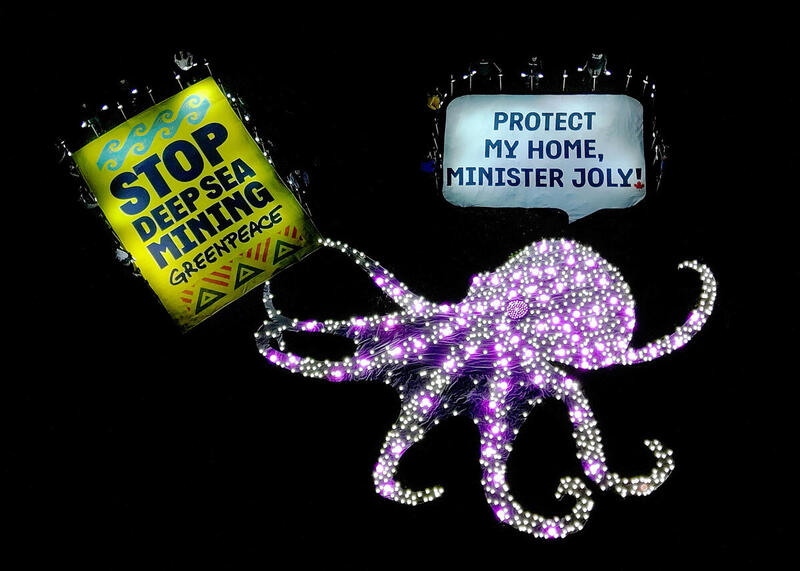
The deep ocean is one of Earth’s last untouched frontiers. It is home to mesmerizing biodiversity, and is vital for the livelihoods and traditions of millions in the world, such as people from the Pacific. But the deep sea mining industry is a looming threat to this part of our planet. Some countries and corporations are racing to extract metals and minerals like cobalt, nickel, manganese and copper from the seabed, with the excuse that those minerals are needed for a clean energy transition. Some want to profit off of it for military purposes.
If only we could have stopped the fossil fuel industry before it began wreaking havoc on our planet. But we do have the chance to prevent the deep sea mining industry from using giant machines to plunder the pristine ocean floor, and devastate everything.
The hopeful news is that there is growing support from civil society and world leaders to prevent deep sea mining before it starts. Last year, Canada announced its support for a moratorium, and now we want to make sure it helps bring other countries onside and push a moratorium through at the International Seabed Authority, the governing body where decisions on deep sea mining take place.
Over 800,000 people around the world have joined the movement to increase political pressure against deep sea mining. Ocean life needs protection, not yet another threat..
3. Support Coastal Communities
Millions of people are connected to the sea. The ocean doesn’t only provide food and oxygen to us, it is deeply embedded in the culture and ancestral wisdom of various Indigenous Peoples and coastal communities around the world. Yet, industrial fishing and aquaculture, marine pollution and the climate crisis have been directly impacting livelihoods and traditions that have been shaped by the ocean for thousands of years.
Indigenous Peoples and coastal communities have been protecting marine ecosystems for generations. Two recent examples associated with our global ocean campaigns are: the people of Seychelles, restoring delicate mangrove forests; and the women of Senegal, who fought against industrial fishing during COVID-19. Indigenous Peoples, Black, Brown, other people of colour, 2SLGBTQI+, other marginalized peoples, women and coastal peoples are disproportionately impacted by the climate and biodiversity crises and by environmental injustice. We must stand with Indigenous Peoples and coastal communities, seafarers, local fishers and other impacted groups calling for the protection of their livelihoods and the ocean, for everyone.
In British Columbia, the salmon aquaculture industry threatens wild salmon and coastal ecosystems. The Canadian government promised to remove salmon farms from B.C. by 2025 but while salmon licenses are set to expire this June, the government is threatening to renew.
Support over 120 First Nations in their call to get fish farms out of the ocean.
4. Call for a plastic-free future via a Global Plastics Treaty
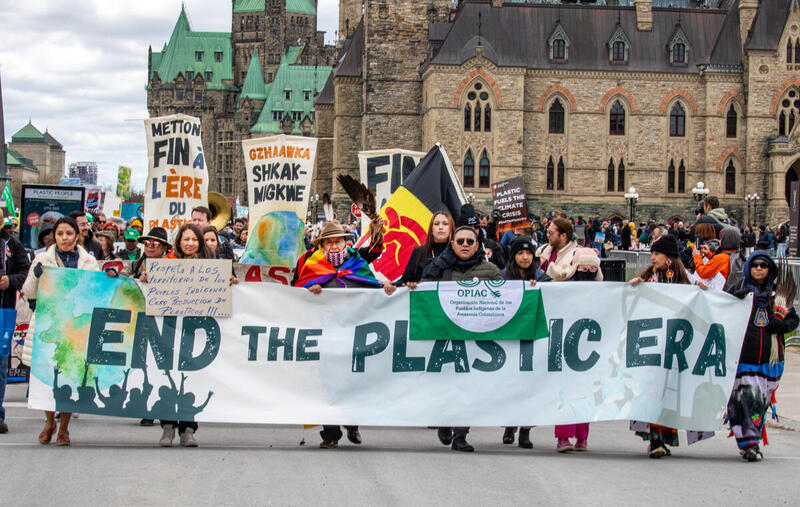
Plastic pollution is everywhere – it has flooded our planet, harming people’s health, accelerating social injustice, destroying biodiversity and fueling the climate crisis at each stage of its life cycle.
Given the scope of the problem, we need global solutions that stop plastic pollution at the source. This year marks a once-in-a-generation opportunity to end the age of plastic.World leaders are discussing a Global Plastics Treaty, an agreement that could help drastically cut plastic production, accelerate a just transition to a reuse-based, zero waste future, and to turn the tide on plastic pollution.
Global polling has revealed that people want a Plastics Treaty that cuts plastic production to stop biodiversity loss and limit climate warming to 1.5 C. We need global governments to step up their level of ambition and courage before the last round of negotiations in November.
Join us in the global movement demanding world leaders secure a strong Global Plastics Treaty.
5. Stop the fossil fuel industry
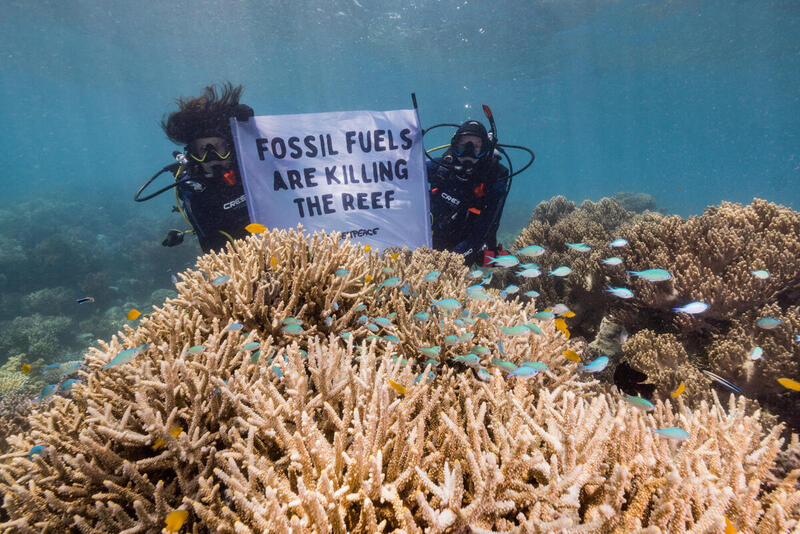
We know that oil production is a threat to our climate and to biodiversity. Global temperatures keep rising both in the atmosphere and in the ocean. Oil spills contaminate the ocean and leave a path of destruction behind. Even International Courts are acknowledging the impacts emissions have in the ocean. Yet, the fossil fuel industry continues to expand, making record-breaking profits.
But Big Oil companies are feeling the pressure, and we won’t back down. We are joining allies in taking direct action to demand companies take responsibility for their role in causing the climate crisis. From occupying Shell’s oil platform in the North Sea, to blocking oil tankers in the Salish Sea, and fighting to protect the Amazon Coast from drilling, keeping fossil fuels out of the oceans, and the atmosphere, is key to the dodging a devastating demise of marine life by the end of the century that scientists are warning about.
7. Be part of the movement
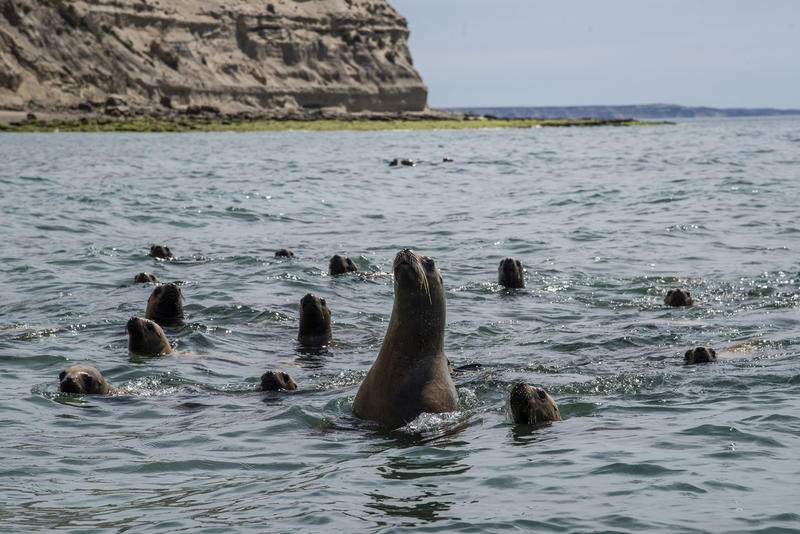
Already signed all these petitions and want to do more? Share these petitions and visit our Act Page to learn how else you can take action or financially support us.
Just like every day is Earth Day, every day is World Oceans Day on our blue planet. Every action counts.

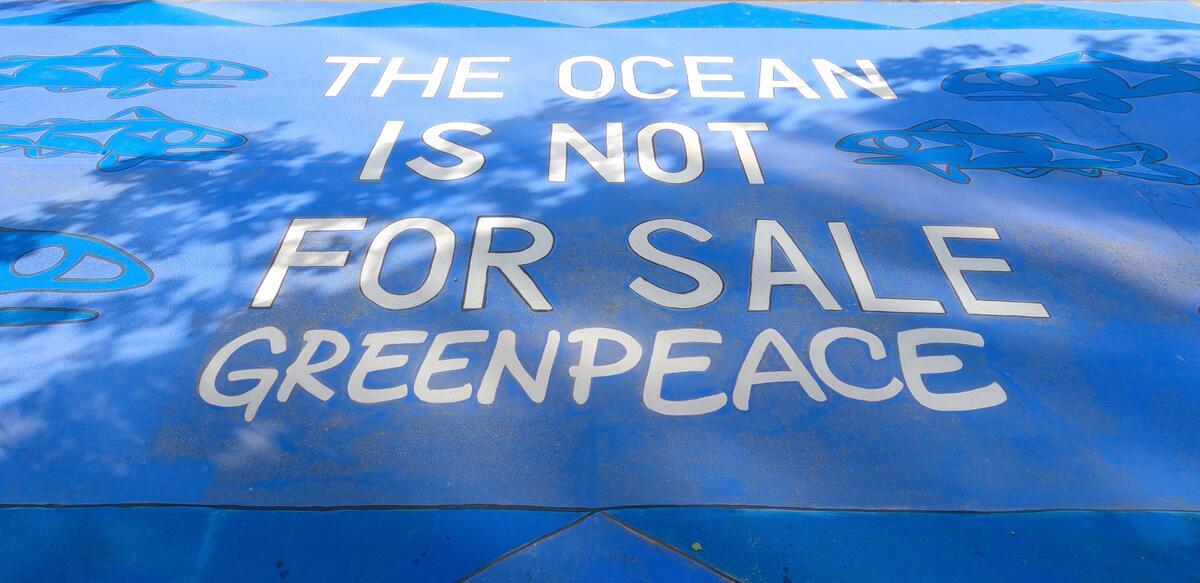
Discussion
Do the right thing
Plastic free..now
Heal The World